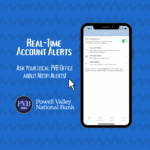Due to complications arising from the COVID-19 pandemic, over 26 million Americans have recently filed for unemployment benefits (including a record 22 million Americans in the 4 weeks leading up to April 11), and even more are expected to file in the coming weeks. The record-smashing number of filings have slowed down filing websites and clogged phone lines, creating ample opportunities for fraudsters to take advantage of the situation.
Read More: COVID-19 Medical Scams and How To Avoid Them
The Office of Inspector General at the U.S. Department of Labor recently released a Fraud Alert detailing the ways in which cybercriminals are using unemployment scams to fraudulently gather and use people’s personal information without their permission.
Read More: Cybercriminals Taking Advantage of Coronavirus
Offering to help individuals file for their unemployment benefits, scammers may ask for personal info, including social security numbers and birth dates, and for payment information in return for filing assistance. The personal info the cybercriminals collect may be used to commit identity theft or to file fraudulent unemployment claims.
You do not need to pay anyone to file or qualify for unemployment benefits.
Unsolicited calls and emails, social media platforms, and door-to-door visits are some of the ways individuals have been targeted. Below are some of the tricks cybercriminals are using to deceive victims, some tips to avoid these tricks, and some official resources to check out.
5 Unemployment Scams
-
Pretending To Be A Government Employee
There have been reports of fraudsters sending phishing emails, texts, and calls pretending to be representatives of official state Unemployment Offices or of other Local, State, or National governmental offices. In many cases, these criminals may offer to help you file a claim or ask you to pay a filing fee or resubmit your claim.
-
Fraudulent Websites
A number of fake websites have popped up perpetrating to help users file for unemployment or even mimicking official filing websites.
-
Fake Job Postings
Capitalizing on people’s need to get back to work, scammers are creating fake job openings and posing as fake recruiters to try to steal personal or payment information. These scams have been seen on Facebook, in phishing emails, texts, and calls. Some common characteristics of these scams include:
- Requests for personally identifiable information
- Job offers that are too good to be true
- Senders or callers you don’t recognize
- Failure to list a specific job
- References to a resume you have not posted online
- Offers to sell you a “starter kit” or pay you with bank account transfers
-
Debit Card Scams
In one recent scam, victims are instructed to apply for a fake debit card in order to receive their unemployment benefits. In another scam, victims are told they have won a Visa gift card free of charge. The unemployment department is NOT giving out free gift cards or other gifts.
-
Online Surveys
Official Unemployment Offices are not paying claimants to take surveys. If you receive an email pretending to be from a government agency requesting you complete an online survey, do not complete the survey. This is likely an attempt to steal your personal information.
Read More: A Message From The FTC Regarding Coronavirus Scams
Tips To Avoid Unemployment Scams
Your best course of action is to simply be cautious. Carefully identify the caller, sender, social media profile, or website you believe you’re interacting with before taking any action.
- Do not give your personal info to anyone over email or in a text message.
- You will NEVER be asked to provide or verify personal info via email or text by an official government agency.
- If you receive an email or text from a claims agency, call the official State Claims Department to verify the authenticity of the email or text.
- Just because a call, email, or text appears to be from an official government office does not necessarily mean that it is, even if the caller seems to have private information about you.
- There is NO FEE to file for unemployment benefits. Do not pay any fees claiming to be related to filing an unemployment claim.
- Only use official government websites to file for unemployment and find helpful information.
- Make sure the URL starts with “https” (instead of “http”) and ends with “.gov”
- Don’t respond to or click links/open attachments in unsolicited texts or emails. Delete them.
- Don’t wire money.
Read More: Fake Check Scams On The Rise (Especially Among Young Adults) – Avoid Them With These Tips
Official Resources
- This U.S. Department of Labor page is dedicated to filing for unemployment, determining eligibility, and explaining how to apply.
- You can also visit their Unemployment Benefits Finder page to access all of the official state unemployment insurance programs, along with general info about the program and how to file a claim online or by phone.
- To report an allegation of fraud involving unemployment insurance or other U.S. Department of Labor activities or programs, contact the OIG Hotline at: https://www.oig.dol.gov/hotline.htm or 1-800-347-3756
- If you suspect a thief is collecting your benefits, file a complaint with ESD. Contact the Identity Theft Resource Center for free assistance and guidance.
- If you believe your financial information may have been compromised, contact your bank immediately. Click here for PVB Debit Card Support Numbers.
Read More: 7 Tips To Protect Your Identity





